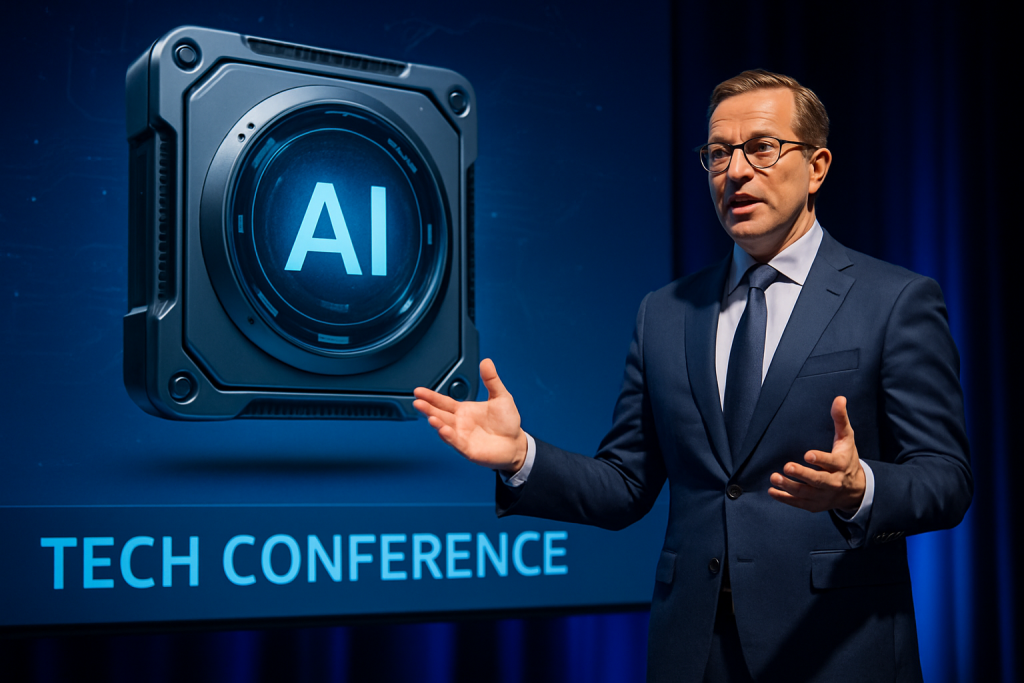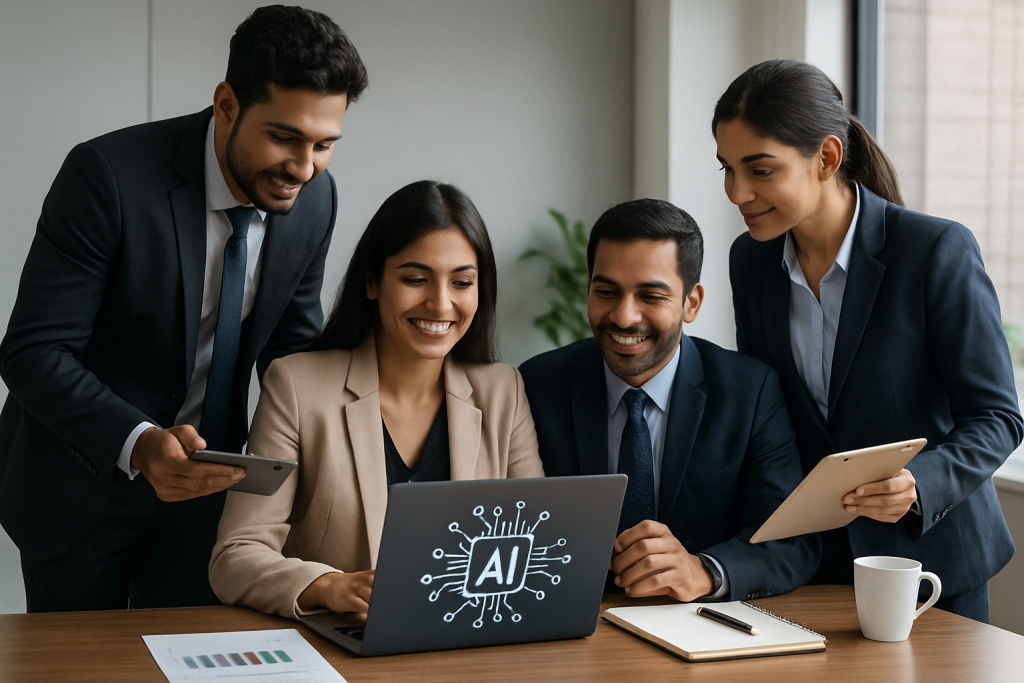OpenAI CEO Sam Altman believes today’s smartphones and computers will become obsolete as artificial intelligence advances. Speaking on Zerodha co-founder Nikhil Kamath’s People by WTF podcast, Altman revealed his vision for ambiently aware hardware that transforms how businesses and consumers interact with AI technology.
The shift marks a dramatic reversal from Altman’s previous stance. He once claimed AI wouldn’t require new hardware. Now he argues current devices lack the continuous, contextual presence needed for advanced AI systems.
Why Current Devices Fall Short
Traditional computers operate in binary mode—either on or off. This limitation prevents AI from becoming the proactive companion businesses need, according to Altman.
“You really want AI to have as much context as possible, do stuff for you, and be proactive,” Altman explained. Current smartphones stay in pockets or hands, failing to provide the constant awareness required for intelligent alerts and timely assistance.
The OpenAI chief envisions AI systems that understand their environment and make smart decisions throughout the day. This vision requires hardware designed specifically for AI’s demanding requirements.
Strategic Partnership with Design Legend Jony Ive
OpenAI’s collaboration with former Apple design chief Jony Ive signals serious hardware ambitions. The partnership explores multiple product categories, including glasses, wearables, and tabletop devices.
“The world will experiment with a lot of those new form factors,” Altman noted. The core goal involves building ambiently aware physical hardware that hosts AI companions.
OpenAI’s $6.5 billion acquisition of Ive’s startup, io Products, demonstrates the company’s commitment to revolutionizing AI interaction. Industry speculation suggests their first device could launch by late 2026.
Legal Hurdles Challenge Hardware Plans
The ambitious hardware venture faces immediate challenges. A federal judge ordered OpenAI and Ive to pause promotion of their new venture following a trademark dispute with startup IYO.
Despite legal setbacks, OpenAI continues developing dedicated AI hardware, including potential custom chips. This marks a significant shift from relying on general-purpose GPUs and servers.
Industry Leaders Echo Hardware Concerns
Altman’s revised position aligns with broader industry sentiment. Google CEO Sundar Pichai recently indicated that achieving artificial general intelligence (AGI) with current hardware seems nearly impossible.
The consensus among tech leaders suggests a fundamental rethink of computing devices. Traditional keyboards and screens may give way to more intuitive interfaces that understand context and user needs.
What Business Leaders Should Know
This hardware evolution creates significant opportunities for forward-thinking companies. Businesses must prepare for AI systems that operate beyond traditional device limitations.
Altman admits users need time to trust AI with personal decisions and life context. However, early adoption of purpose-built AI devices could provide competitive advantages in customer service, productivity, and operational efficiency.
Global Impact on Technology Markets
OpenAI’s hardware push signals the most significant tech disruption since the iPhone’s 2007 launch. The shift from software-only AI to integrated hardware solutions could reshape entire industries.
Manufacturing, retail, healthcare, and financial services face potential transformation as AI becomes truly omnipresent. Companies investing early in AI-ready infrastructure may gain substantial market advantages.
Altman’s vision points toward a future where AI transcends screen boundaries. The technology becomes a natural extension of daily business operations, offering seamless integration between digital intelligence and physical environments.
The next few years prove crucial as OpenAI and competitors race to define post-smartphone computing. Business leaders who understand this transition can position their organizations for success in an AI-first world.


